MISSION
A National Institute for Photography
The Deutsches Fotoinstitut (DFI) is being established as a public institution dedicated to the research, preservation, and dissemination of photographic culture in Germany. It envisions itself as a platform for knowledge and exchange within a federal, decentralized, and digitally connected network – an open institution with an international outlook.
It brings people and ideas together with archives, fosters dialogue between art, collections, and research, and works to develop shared standards and structures for the future of photography.
Its mission: to safeguard the photographic heritage, make knowledge accessible, and advance visual literacy in a world increasingly shaped by images.
→ more
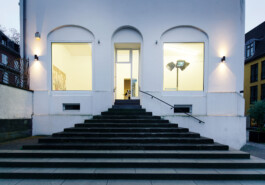
Currently at Projektbüro DFI e.V.
→ Eiskellerberg 1-3, 40213 Düsseldorf
02/02 – 22/02/2026
More on www.towards.photography
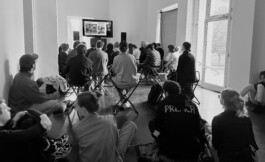
TOWARDS
PHOTOGRAPHY
Towards Photography examines the present and explores the future of photography. The event series of DFI e.V. is conceived as an open forum for discourse between international artists, theorists, scholars, and authors, as well as the local art and cultural scene and the wider public. Through exhibitions, workshops, talks, lectures, and panel discussions—held at the DFI e.V. project space in Düsseldorf and online—Towards Photography enables direct exchange among all participants on the role of photography as a medium.

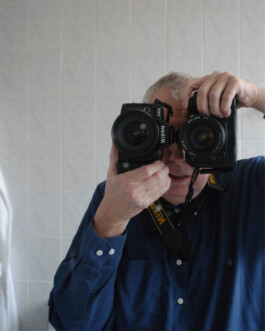


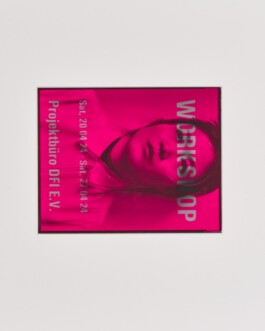
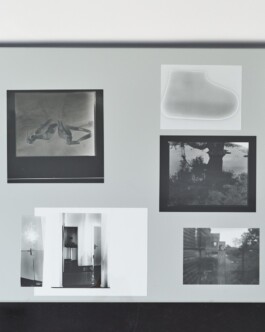
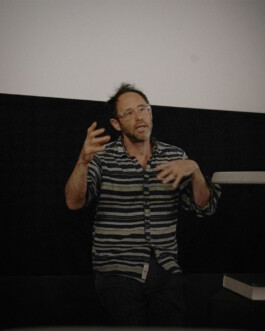

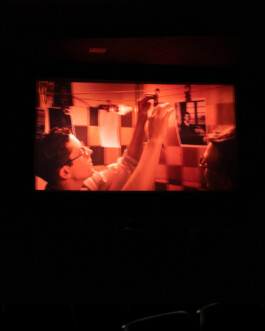

Jan Dibbets: This Giant Child
Jan Dibbets: This Giant Child – a production realised in collaboration with ATM Film
COOPERATIONS
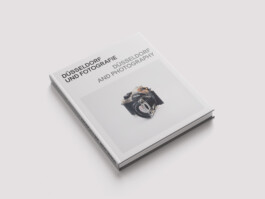
State capital Düsseldorf
In collaboration with art and media scholar Dr Christina Irrgang, the DFI e.V. and the Cultural Office produced "Düsseldorf and Photography” a report that chronicles the past and present of Düsseldorf as a centre of photography.
The publication illustrates the diversity of the city as an international centre for photography and provides a current foundation for promoting the medium’s future development in Düsseldorf. Moreover, it reflects role photography plays in Düsseldorf, its history, its most important locations for communication, research and archiving, the regional and international networks created and its importance as an economic factor.
Düsseldorf has been closely associated with the medium of photography ever since its invention. From an early stage, artists in Düsseldorf have consistently integrated photography into their artistic practice. As a result, an internationally unique network for teaching, producing, processing and presenting photography has developed. This network and the approach to the photographic medium as a cultural asset will be developed further in collaboration with all those involved. With this in mind, the state capital Düsseldorf established Germany's first coordination centre for photography at the Department of Culture in May 2021, followed by the presentation of the report "Düsseldorf and Photography" in June 2022. The report is available in full as a PDF on the state capital Düsseldorf website.
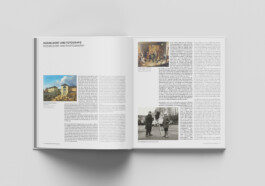
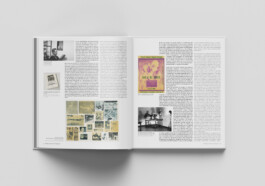
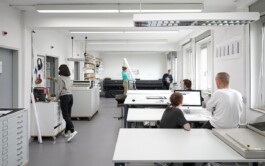
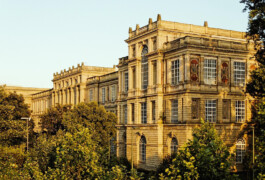
Hellraum der Werkstatt für Fotografie, Foto: Babette Bangemann
Düsseldorf Art Academy
The Kunstakademie Düsseldorf (Düsseldorf Art Academy), founded in 1773 by Elector Carl Theodor as the Electoral Palatinate Academy of Painting, Sculpture and Architecture is this year celebrating its 250th anniversary. In 1819, it was renamed the Royal Academy of Art of the Prussian Rhine provinces. Today it is a public corporation and an institution of the state of North Rhine-Westphalia, offering degrees in painting, sculpture, graphic design, architecture, stage design, photography, film and video.
The Kunstakademie experienced an intensive period of activity during the tumultuous 1960s and 1970s thanks to numerous Fluxus events and actions by artists such as Nam June Paik and Joseph Beuys. Artists such as Katharina Sieverding, Blinky Palermo, Rosemarie Trockel, Gerhard Richter, Isa Genzken, Thomas Schütte, Imi Knoebel and Jörg Immendorff have all taught and studied here. Due to its ongoing engagement with images, the Academy has developed a unique approach to photography that has provided continuous impetus for production, analysis and art historical research in the field.
A new chapter began in 1976, when Bernd Becher was awarded the first professorship for photography and thus established the world's first photography class at an art academy.
Bernd Becher's class, which included graduates such as Andreas Gursky, Candida Höfer, Axel Hütte, Tata Ronkholz, Thomas Ruff, Jörg Sasse, Thomas Struth and many others, was subsequently headed by Christopher Williams until the middle of 2023, while Sophie Thun currently occupies the position. The Fine Art class is led by Peter Piller.
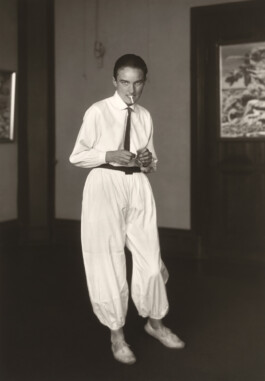
August Sander, Frau eines Malers [Helene Abelen], um 1926/27
Die Photographische Sammlung/SK Stiftung Kultur, Köln
Die Photographische Sammlung/SK Stiftung Kultur in Cologne is home to the August Sander Archive and contains the world's largest collection of original prints and preserved negatives, August Sander's letters and correspondence as well as an extensive library. A further important component of the institution is the archive of the artist couple Bernd and Hilla Becher. A collection has been compiled on this foundation that comprehensively reflects the tradition, including both present and future development of conceptual documentary photography.
Gabriele Conrath-Scholl, who has been the director of the Photographic Collection since 2007, says the following about a German Photographic Institute in Düsseldorf: "Düsseldorf is able to point to a significant artistic tradition in which photography has been incorporated in a variety of ways. The Kunstakademie plays a central role in this. Behind all of these personalities and their works stands a great and invaluable chapter in the history of art and photography, which was created in Germany and has a profoundly influential impact on contemporary art and photography internationally. Thus, Düsseldorf is proving to be a nucleus for the artistic acceptance of the medium of photography with far-reaching effects. Last but not least, Düsseldorf is home to a vast number of photographers, studios and associated companies. In this context, Düsseldorf can offer networks and synergies in a variety of different directions.”
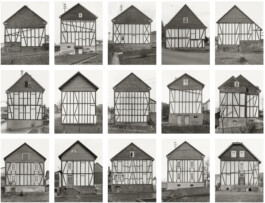
Bernd und Hilla Becher, Fachwerkhäuser des Siegener Industriegebietes. Verschieferte Giebelseiten, 1961–1978

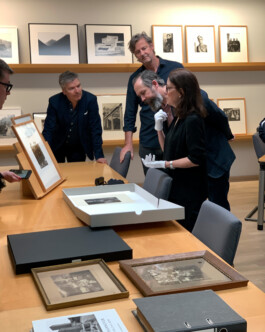
Die Photographische Sammlung/SK Stiftung Kultur, Köln
Die Photographische Sammlung/SK Stiftung Kultur, Köln
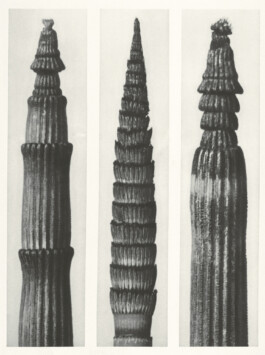
Karl Blossfeldt, Winterschachtelhalme, o. D., [Urformen der Kunst, 1928]

August Kotzsch: Kornpuppe, um 1895

Simone Nieweg: Gartenhaus (mit Teppichfliesen), Meldorf 1986

Depot Boijmans Van Beuningen, Außenansicht
Depot Boijmans Van Beuningen, Rotterdam
The Museum Boijmans Van Beuningen is the largest art museum in Rotterdam and houses a collection of 150,000 objects. In 2021 the museum constructed a publicly accessible depot in order to bring more visibility to the art that is not on permanent display. It is the only one of its kind in the world and functions much like a showcase, providing access to the entire collection. As such, the depot differs from the normally closed and inaccessible depots of art museums. In an act of maximum possible transparency, the processes and activities that take place within the museum have also been made visible, for example the conservation of art and its preparation for transport. Furthermore, visitors can experience curated exhibitions as well as regularly changing presentations. The Boijmans Van Beuningen Depot has offered the DFI e.V. their cooperation with regard to the establishment of the DFI in Düsseldorf.

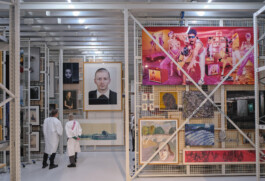
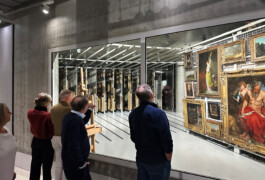
Restaurierungswerkstatt im Depot Boijmans Van Beuningen
Fotografien und Gemälde im Depot Boijmans Van Beuningen
Gemälde im Depot Boijmans Van Beuningen
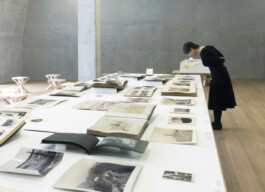
Jacques Herzog und Pierre de Meuron Kabinett, Basel

Unknown Photographer, Views of the Yellow Stone Park in color, 9.–16.7.1919
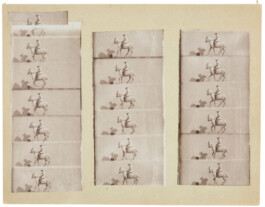
Etienne-Jules Marey, Motion study of a horse and rider, 1894
Jacques Herzog and Pierre de Meuron Kabinett, Basel with the Ruth and Peter Herzog photo collection
Ruth and Peter Herzog's collection of over 700,000 photographs contains exhibits from all over the world. Spanning from the earliest stages of photography in 1839 through to the 1970s, it traces the development of the medium, while at the same time telling a pictorial history of mankind via original works. The two collectors spent decades compiling an overview of analogue photography that is characterised by its remarkable diversity. All facets of the medium are represented in a wide variety of formats, materials, techniques, forms of presentation and themes. The collection includes albums, framed objects and negative plates from the fields of amateur photography, advertising and travel photography. Family and holiday albums are represented as well as soldier and war albums, landscape photography, photographs from expeditions and collections of artist portraits. The Ruth and Peter Herzog photo collection has been integrated, as an independent component, into the Jacques Herzog and Pierre de Meuron Kabinett, Basel, since 2015. 2020 saw an extensive selection of works from the collection presented in the exhibition "The Incredible World of Photography" at Kunstmuseum Basel. The collection is being continuously analysed and made accessible to the public via an extensive online database.
„Accumulating an immense global mosaic of the life of as many inhabitants on this planet as possible — I have to admit that’s a pretty ambitious goal that we’ve set for ourselves and our collection … Human beings are the focal point of the collection. What makes us human? What do people wish and hope for, what do they dream about? We are intrigued by the fact that, since 1839, there has been a medium capable of recording the history of humankind in meaningful and extremely concentrated images. Our store of photographs is useful to a wide variety of university disciplines, and it allows entirely different kinds of museums to collaborate.“ — Peter Herzog
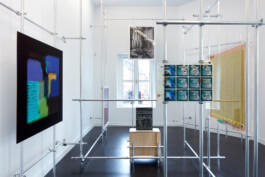
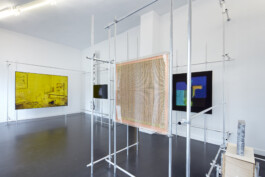
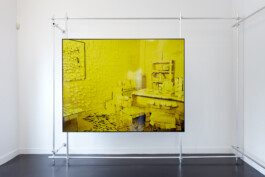
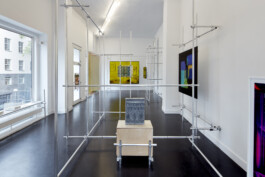
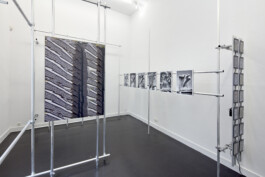
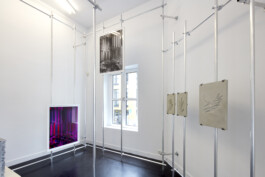
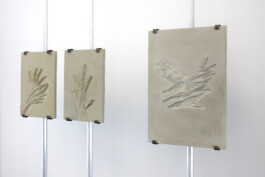
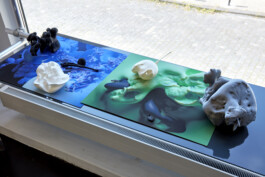
darktaxa-project: phtoograify, Projektbüro DFI e.V., Mai 2024
darktaxa-project: phtoograify, Projektbüro DFI e.V., Mai 2024
darktaxa-project: phtoograify, Projektbüro DFI e.V., Mai 2024
darktaxa-project: phtoograify, Projektbüro DFI e.V., Mai 2024
darktaxa-project: phtoograify, Projektbüro DFI e.V., Mai 2024
darktaxa-project: phtoograify, Projektbüro DFI e.V., Mai 2024
darktaxa-project: phtoograify, Projektbüro DFI e.V., Mai 2024
darktaxa-project: phtoograify, Projektbüro DFI e.V., Mai 2024
düsseldorf photo+
darktaxa-project
The current Biennale for Visual and Sonic Media, düsseldorf photo+, took place from May 17 to July 14, 2024, under the theme ON REALITY. Throughout the city, exhibitions, presentations, concerts, discussions, lectures, panels, and other events were hosted in museums, collections, galleries, independent exhibition spaces, and universities. These events were united by their engagement with diverse questions and media that play a crucial role in shaping our contemporary understanding of reality.
darktaxa-project is a collaborative and discursive platform for artists working experimentally at the intersection of photography and new digital imaging technologies.
darktaxa-project: phtoograify
Group exhibition at Projektbüro DFI e.V., as part of düsseldorf photo+, featuring works by: Ralf Brueck, Raphael Brunk, Heather Dewey-Hagborg, Philipp Goldbach, Alex Grein, Spiros Hadjijanos, Fabian Hesse & Mitra Wakil, Kristina Lenz & Alex Simon Klug, Achim Mohné, Johannes Post, Michael Reisch, Anna Ridler, Aaron Scheer, Björn Siebert, David Young

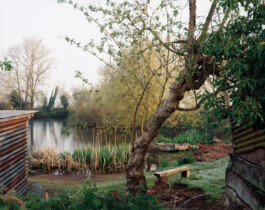

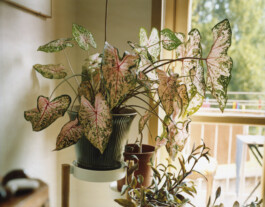
Gerry Johansson, Los Angeles, California, 1983
Gelatin silver contact print / 25,1 x 20 cm
From the portfolio “Coast to Coast” (2023)
Jem Southam, The Pond at Upton Pyne, March 2000
Chromogenic contact print / 24,3 x 19,2 cm
From the portfolio "The Pond at Upton Pyne", (2024)
Mark Ruwedel, Burnt Tree: Verdugo Mountains, #8, 2018
Gelatin silver print / 20,3 x 25,4 cm
Frome the portfolio “BURNT” (2022)
Marcello Galvani, Bologna, 13.07.2020
Chromogenic contact print / 25,1 x 20 cm
From the portfolio “Otto volte due” (2022)
Imagebeeld Edition, Brussels
PS/SK Cologne
→ www.imagebeeldedition.com
→ www.towards.photography
MISSION
A National Institute for Photography
The Deutsches Fotoinstitut (DFI) is being established as a public institution dedicated to the research, preservation, and dissemination of photographic culture in Germany. It envisions itself as a platform for knowledge and exchange within a federal, decentralized, and digitally connected network – an open institution with an international outlook.
It brings people and ideas together with archives, fosters dialogue between art, collections, and research, and works to develop shared standards and structures for the future of photography.
Its mission: to safeguard the photographic heritage, make knowledge accessible, and advance visual literacy in a world increasingly shaped by images.
→ more

Currently at Projektbüro DFI e.V.
→ Eiskellerberg 1-3, 40213 Düsseldorf
02/02 – 22/02/2026
More on www.towards.photography

TOWARDS
PHOTOGRAPHY
Towards Photography examines the present and explores the future of photography. The event series of DFI e.V. is conceived as an open forum for discourse between international artists, theorists, scholars, and authors, as well as the local art and cultural scene and the wider public. Through exhibitions, workshops, talks, lectures, and panel discussions—held at the DFI e.V. project space in Düsseldorf and online—Towards Photography enables direct exchange among all participants on the role of photography as a medium.
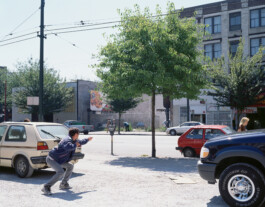
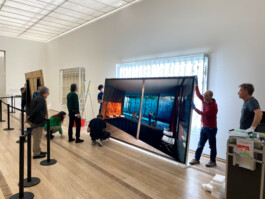
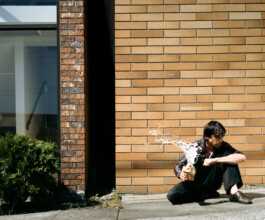
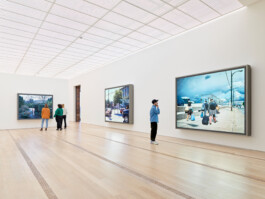










Jan Dibbets: This Giant Child
Jan Dibbets: This Giant Child – a production realised in collaboration with ATM Film
COOPERATIONS
State capital Düsseldorf
In collaboration with art and media scholar Dr Christina Irrgang, the DFI e.V. and the Cultural Office produced "Düsseldorf and Photography” a report that chronicles the past and present of Düsseldorf as a centre of photography.
The publication illustrates the diversity of the city as an international centre for photography and provides a current foundation for promoting the medium’s future development in Düsseldorf. Moreover, it reflects role photography plays in Düsseldorf, its history, its most important locations for communication, research and archiving, the regional and international networks created and its importance as an economic factor.
Düsseldorf has been closely associated with the medium of photography ever since its invention. From an early stage, artists in Düsseldorf have consistently integrated photography into their artistic practice. As a result, an internationally unique network for teaching, producing, processing and presenting photography has developed. This network and the approach to the photographic medium as a cultural asset will be developed further in collaboration with all those involved. With this in mind, the state capital Düsseldorf established Germany's first coordination centre for photography at the Department of Culture in May 2021, followed by the presentation of the report "Düsseldorf and Photography" in June 2022. The report is available in full as a PDF on the state capital Düsseldorf website.



Düsseldorf Art Academy
The Kunstakademie Düsseldorf (Düsseldorf Art Academy), founded in 1773 by Elector Carl Theodor as the Electoral Palatinate Academy of Painting, Sculpture and Architecture is this year celebrating its 250th anniversary. In 1819, it was renamed the Royal Academy of Art of the Prussian Rhine provinces. Today it is a public corporation and an institution of the state of North Rhine-Westphalia, offering degrees in painting, sculpture, graphic design, architecture, stage design, photography, film and video.
The Kunstakademie experienced an intensive period of activity during the tumultuous 1960s and 1970s thanks to numerous Fluxus events and actions by artists such as Nam June Paik and Joseph Beuys. Artists such as Katharina Sieverding, Blinky Palermo, Rosemarie Trockel, Gerhard Richter, Isa Genzken, Thomas Schütte, Imi Knoebel and Jörg Immendorff have all taught and studied here. Due to its ongoing engagement with images, the Academy has developed a unique approach to photography that has provided continuous impetus for production, analysis and art historical research in the field.
A new chapter began in 1976, when Bernd Becher was awarded the first professorship for photography and thus established the world's first photography class at an art academy.
Bernd Becher's class, which included graduates such as Andreas Gursky, Candida Höfer, Axel Hütte, Tata Ronkholz, Thomas Ruff, Jörg Sasse, Thomas Struth and many others, was subsequently headed by Christopher Williams until the middle of 2023, while Sophie Thun currently occupies the position. The Fine Art class is led by Peter Piller.


Hellraum der Werkstatt für Fotografie, Foto: Babette Bangemann
Die Photographische Sammlung/SK Stiftung Kultur, Köln
Die Photographische Sammlung/SK Stiftung Kultur in Cologne is home to the August Sander Archive and contains the world's largest collection of original prints and preserved negatives, August Sander's letters and correspondence as well as an extensive library. A further important component of the institution is the archive of the artist couple Bernd and Hilla Becher. A collection has been compiled on this foundation that comprehensively reflects the tradition, including both present and future development of conceptual documentary photography.
Gabriele Conrath-Scholl, who has been the director of the Photographic Collection since 2007, says the following about a German Photographic Institute in Düsseldorf: "Düsseldorf is able to point to a significant artistic tradition in which photography has been incorporated in a variety of ways. The Kunstakademie plays a central role in this. Behind all of these personalities and their works stands a great and invaluable chapter in the history of art and photography, which was created in Germany and has a profoundly influential impact on contemporary art and photography internationally. Thus, Düsseldorf is proving to be a nucleus for the artistic acceptance of the medium of photography with far-reaching effects. Last but not least, Düsseldorf is home to a vast number of photographers, studios and associated companies. In this context, Düsseldorf can offer networks and synergies in a variety of different directions.”

August Sander, Frau eines Malers [Helene Abelen], um 1926/27

Karl Blossfeldt, Winterschachtelhalme, o. D., [Urformen der Kunst, 1928]

Bernd und Hilla Becher, Fachwerkhäuser des Siegener Industriegebietes. Verschieferte Giebelseiten, 1961–1978

August Kotzsch: Kornpuppe, um 1895

Simone Nieweg: Gartenhaus (mit Teppichfliesen), Meldorf 1986


Die Photographische Sammlung/SK Stiftung Kultur, Köln
Die Photographische Sammlung/SK Stiftung Kultur, Köln
Depot Boijmans Van Beuningen, Rotterdam
The Museum Boijmans Van Beuningen is the largest art museum in Rotterdam and houses a collection of 150,000 objects. In 2021 the museum constructed a publicly accessible depot in order to bring more visibility to the art that is not on permanent display. It is the only one of its kind in the world and functions much like a showcase, providing access to the entire collection. As such, the depot differs from the normally closed and inaccessible depots of art museums. In an act of maximum possible transparency, the processes and activities that take place within the museum have also been made visible, for example the conservation of art and its preparation for transport. Furthermore, visitors can experience curated exhibitions as well as regularly changing presentations. The Boijmans Van Beuningen Depot has offered the DFI e.V. their cooperation with regard to the establishment of the DFI in Düsseldorf.

Depot Boijmans Van Beuningen, Außenansicht



Restaurierungswerkstatt im Depot Boijmans Van Beuningen
Fotografien und Gemälde im Depot Boijmans Van Beuningen
Gemälde im Depot Boijmans Van Beuningen
Jacques Herzog and Pierre de Meuron Kabinett, Basel with the Ruth and Peter Herzog photo collection
Ruth and Peter Herzog's collection of over 700,000 photographs contains exhibits from all over the world. Spanning from the earliest stages of photography in 1839 through to the 1970s, it traces the development of the medium, while at the same time telling a pictorial history of mankind via original works. The two collectors spent decades compiling an overview of analogue photography that is characterised by its remarkable diversity. All facets of the medium are represented in a wide variety of formats, materials, techniques, forms of presentation and themes. The collection includes albums, framed objects and negative plates from the fields of amateur photography, advertising and travel photography. Family and holiday albums are represented as well as soldier and war albums, landscape photography, photographs from expeditions and collections of artist portraits. The Ruth and Peter Herzog photo collection has been integrated, as an independent component, into the Jacques Herzog and Pierre de Meuron Kabinett, Basel, since 2015. 2020 saw an extensive selection of works from the collection presented in the exhibition "The Incredible World of Photography" at Kunstmuseum Basel. The collection is being continuously analysed and made accessible to the public via an extensive online database.
„Accumulating an immense global mosaic of the life of as many inhabitants on this planet as possible — I have to admit that’s a pretty ambitious goal that we’ve set for ourselves and our collection … Human beings are the focal point of the collection. What makes us human? What do people wish and hope for, what do they dream about? We are intrigued by the fact that, since 1839, there has been a medium capable of recording the history of humankind in meaningful and extremely concentrated images. Our store of photographs is useful to a wide variety of university disciplines, and it allows entirely different kinds of museums to collaborate.“ — Peter Herzog

Jacques Herzog und Pierre de Meuron Kabinett, Basel

Unknown Photographer, Views of the Yellow Stone Park in color, 9.–16.7.1919

Etienne-Jules Marey, Motion study of a horse and rider, 1894








darktaxa-project: phtoograify, Projektbüro DFI e.V., Mai 2024
darktaxa-project: phtoograify, Projektbüro DFI e.V., Mai 2024
darktaxa-project: phtoograify, Projektbüro DFI e.V., Mai 2024
darktaxa-project: phtoograify, Projektbüro DFI e.V., Mai 2024
darktaxa-project: phtoograify, Projektbüro DFI e.V., Mai 2024
darktaxa-project: phtoograify, Projektbüro DFI e.V., Mai 2024
darktaxa-project: phtoograify, Projektbüro DFI e.V., Mai 2024
darktaxa-project: phtoograify, Projektbüro DFI e.V., Mai 2024
düsseldorf photo+
darktaxa-project
The current Biennale for Visual and Sonic Media, düsseldorf photo+, took place from May 17 to July 14, 2024, under the theme ON REALITY. Throughout the city, exhibitions, presentations, concerts, discussions, lectures, panels, and other events were hosted in museums, collections, galleries, independent exhibition spaces, and universities. These events were united by their engagement with diverse questions and media that play a crucial role in shaping our contemporary understanding of reality.
darktaxa-project is a collaborative and discursive platform for artists working experimentally at the intersection of photography and new digital imaging technologies.
darktaxa-project: phtoograify
Group exhibition at Projektbüro DFI e.V., as part of düsseldorf photo+, featuring works by: Ralf Brueck, Raphael Brunk, Heather Dewey-Hagborg, Philipp Goldbach, Alex Grein, Spiros Hadjijanos, Fabian Hesse & Mitra Wakil, Kristina Lenz & Alex Simon Klug, Achim Mohné, Johannes Post, Michael Reisch, Anna Ridler, Aaron Scheer, Björn Siebert, David Young




Gerry Johansson, Los Angeles, California, 1983
Gelatin silver contact print / 25,1 x 20 cm
From the portfolio “Coast to Coast” (2023)
Jem Southam, The Pond at Upton Pyne, March 2000
Chromogenic contact print / 24,3 x 19,2 cm
From the portfolio "The Pond at Upton Pyne", (2024)
Mark Ruwedel, Burnt Tree: Verdugo Mountains, #8, 2018
Gelatin silver print / 20,3 x 25,4 cm
Frome the portfolio “BURNT” (2022)
Marcello Galvani, Bologna, 13.07.2020
Chromogenic contact print / 25,1 x 20 cm
From the portfolio “Otto volte due” (2022)
Imagebeeld Edition, Brussels
PS/SK Cologne
→ www.imagebeeldedition.com
→ www.towards.photography
NEWSLETTER
Kontakt: info@dfi-ev.org
Partner

© 2024 Verein zur Gründung und Förderung eines Deutschen Fotoinstituts – DFI e.V.
Bildnachweise
Towards Photography
Foto: Peter Schlegel
Landeshauptstadt Düsseldorf
Fotos: Edi Winarni
Kunstakademie Düsseldorf
© Babette Bangemann;
Hauptfassade der Kunstakademie von NW, Foto: Wiegels, CC BY 3.0
Depot Boijmans Van Beuningen, Rotterdam
Foto © Ossip van Duivenbode, 2022
Fotosammlung Ruth und Peter Herzog
© als Sammlung im Jacques Herzog und Pierre de Meuron Kabinett, Basel, 2023. All right reserved.
A National Institute for Photography
The Deutsches Fotoinstitut (DFI) is taking shape as a public institution dedicated to the past, present, and future of photography
The question of how photographic heritage can be preserved, researched, and made accessible has accompanied Germany since the late 19th century. Invented in France and England in the 1830s, photography soon found institutional homes there—whereas in Germany, a federally anchored institution that connects the diverse realms of photography has been missing to this day. With the Deutsches Fotoinstitut (DFI), an institution is now emerging to take on this task and to bring together the past, present, and future of photography.
With its artists and photographers, its camera and optics industry, and its significant collections, Germany has made essential contributions to the international history of photography. Yet preserving this legacy has become an increasing challenge. Many holdings are at risk due to a lack of overarching coordination, shared standards, and suitable storage and depot facilities. The fragility and transience of photographic materials—from silvered copper plates and glass negatives to C-prints, color films, Polaroids, or JPEG files—show how vulnerable photographic heritage is when coordinated preservation strategies and sustained funding are absent.
Against this background, the Deutsches Fotoinstitut (DFI) is being established as a public institution to address these diverse responsibilities. Conceived as a research center and working platform, the DFI connects archives, collections, and practitioners, supports their work, and links preservation and conservation with research and exchange to safeguard the photographic heritage, make knowledge accessible, and foster visual literacy in a world shaped by images.
Founding Commission and Final Report
To define the emerging institute’s scope and direction, the Federal Government, the State of North Rhine-Westphalia, and the City of Düsseldorf tasked a founding commission, which presented its final report in July 2025. The report outlines key areas of activity—from public programs, exhibitions, and advisory services for archives, collections, and artists’ studios to digitization, research, and the safeguarding and conservation of photographic materials.
Further information and official statements by the Federal Government, the State of North Rhine-Westphalia, and the City of Düsseldorf can be found on the website of the Ministry of Culture and Science of North Rhine-Westphalia. There one can find the full report of the founding commission.
The DFI Association – Initiative, Conception, and Collaboration
The Deutsches Fotoinstitut (DFI) originated from an initiative by artists whose work operates within the dynamic field between artistic practice and technological change.
The transition from analog to digital technology and the sustainable use of photographic materials and production processes raise complex questions that continually demand new solutions. Out of these inquiries, Andreas Gursky, Stefan Hostettler, and Moritz Wegwerth (Chair, DFI e. V.) developed a set of key themes and questions, from which—together with colleagues, experts, the Ministry of Culture in North Rhine-Westphalia, and representatives of the photographic field—the concept for a Deutsches Fotoinstitut was formulated.
To further develop this vision of a public, internationally oriented center for photography, the initiators founded the non-profit Association for the Establishment and Promotion of a Deutsches Fotoinstitut e. V. Among its first members and supporters were Max Becher, Jen DeNike, Jan Dibbets, Roe Ethridge, Hans-Peter Feldmann, Peter Piller, Cindy Sherman, Jeff Wall, and Christopher Williams.
The joint funding proposal for a Deutsches Fotoinstitut submitted by the City of Düsseldorf and the DFI e. V. in October 2019, together with the first published concept paper from May 2020, laid the foundation for the institute’s current realization—jointly decided by the Federal Government, the State of North Rhine-Westphalia, and the City of Düsseldorf.
From the association’s work, collaborations have emerged with educational institutions, collections, and partner organizations that accompany and substantively support the institute’s development. The DFI e. V. collaborates with the Kunstakademie Düsseldorf, the Photographische Sammlung/SK Stiftung Kultur in Cologne, the City of Düsseldorf, the Fondation Herzog in Basel, the Depot Boijmans Van Beuningen in Rotterdam, and other partners on projects and initiatives that evolve through ongoing exchange.
Towards Photography – Discourse and Exchange
With the exhibition and discursive series Towards Photography, the DFI e. V. opens a space for dialogue and critical engagement. The series addresses both international and local audiences. Through lectures, conversations, exhibitions, and workshops, current questions of photography are explored in collaboration with artists, theorists, initiatives, and educational institutions.
Further information: towards.photography
A National Institute for Photography
The Deutsches Fotoinstitut (DFI) is taking shape as a public institution dedicated to the past, present, and future of photography
The question of how photographic heritage can be preserved, researched, and made accessible has accompanied Germany since the late 19th century. Invented in France and England in the 1830s, photography soon found institutional homes there—whereas in Germany, a federally anchored institution that connects the diverse realms of photography has been missing to this day. With the Deutsches Fotoinstitut (DFI), an institution is now emerging to take on this task and to bring together the past, present, and future of photography.
With its artists and photographers, its camera and optics industry, and its significant collections, Germany has made essential contributions to the international history of photography. Yet preserving this legacy has become an increasing challenge. Many holdings are at risk due to a lack of overarching coordination, shared standards, and suitable storage and depot facilities. The fragility and transience of photographic materials—from silvered copper plates and glass negatives to C-prints, color films, Polaroids, or JPEG files—show how vulnerable photographic heritage is when coordinated preservation strategies and sustained funding are absent.
Against this background, the Deutsches Fotoinstitut (DFI) is being established as a public institution to address these diverse responsibilities. Conceived as a research center and working platform, the DFI connects archives, collections, and practitioners, supports their work, and links preservation and conservation with research and exchange to safeguard the photographic heritage, make knowledge accessible, and foster visual literacy in a world shaped by images.
Founding Commission and Final Report
To define the emerging institute’s scope and direction, the Federal Government, the State of North Rhine-Westphalia, and the City of Düsseldorf tasked a founding commission, which presented its final report in July 2025. The report outlines key areas of activity—from public programs, exhibitions, and advisory services for archives, collections, and artists’ studios to digitization, research, and the safeguarding and conservation of photographic materials.
Further information and official statements by the Federal Government, the State of North Rhine-Westphalia, and the City of Düsseldorf can be found on the website of the Ministry of Culture and Science of North Rhine-Westphalia. There one can find the full report of the founding commission.
The DFI Association – Initiative, Conception, and Collaboration
The Deutsches Fotoinstitut (DFI) originated from an initiative by artists whose work operates within the dynamic field between artistic practice and technological change.
The transition from analog to digital technology and the sustainable use of photographic materials and production processes raise complex questions that continually demand new solutions. Out of these inquiries, Andreas Gursky, Stefan Hostettler, and Moritz Wegwerth (Chair, DFI e. V.) developed a set of key themes and questions, from which—together with colleagues, experts, the Ministry of Culture in North Rhine-Westphalia, and representatives of the photographic field—the concept for a Deutsches Fotoinstitut was formulated.
To further develop this vision of a public, internationally oriented center for photography, the initiators founded the non-profit Association for the Establishment and Promotion of a Deutsches Fotoinstitut e. V. Among its first members and supporters were Max Becher, Jen DeNike, Jan Dibbets, Roe Ethridge, Hans-Peter Feldmann, Peter Piller, Cindy Sherman, Jeff Wall, and Christopher Williams.
The joint funding proposal for a Deutsches Fotoinstitut submitted by the City of Düsseldorf and the DFI e. V. in October 2019, together with the first published concept paper from May 2020, laid the foundation for the institute’s current realization—jointly decided by the Federal Government, the State of North Rhine-Westphalia, and the City of Düsseldorf.
From the association’s work, collaborations have emerged with educational institutions, collections, and partner organizations that accompany and substantively support the institute’s development. The DFI e. V. collaborates with the Kunstakademie Düsseldorf, the Photographische Sammlung/SK Stiftung Kultur in Cologne, the City of Düsseldorf, the Fondation Herzog in Basel, the Depot Boijmans Van Beuningen in Rotterdam, and other partners on projects and initiatives that evolve through ongoing exchange.
Towards Photography – Discourse and Exchange
With the exhibition and discursive series Towards Photography, the DFI e. V. opens a space for dialogue and critical engagement. The series addresses both international and local audiences. Through lectures, conversations, exhibitions, and workshops, current questions of photography are explored in collaboration with artists, theorists, initiatives, and educational institutions.
Further information: towards.photography